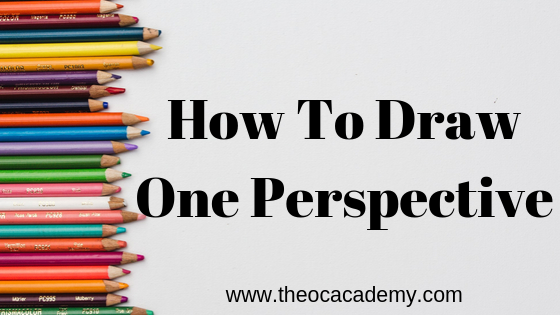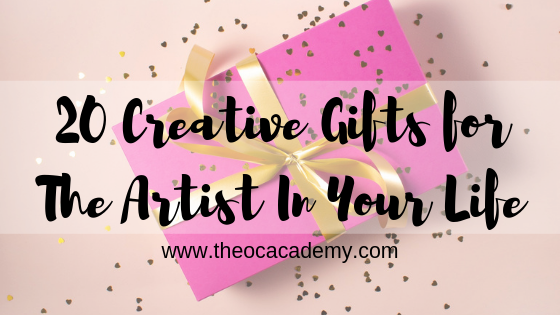You love creating content, however, ever now and again you become stuck. You have so many ideas just running through your mind until you lose sight of everything and then all of your ideas turn into none. I have had this problem too. So, I keep a list. I have a running list of 100-200 Content ideas with a brief description of what to write about. I treat this list as a book of prompts that I refer back to whenever I need a little creative nudge. In this blog post, I will be walking you through the steps to creating a List of Content Ideas that is relevant to your niche
What You Will Need
- Paper
- Something to Write on
- An Open Mind
- Internet Access
Step One | Brainstorm
Answer the following questions:
- What is your niche?
- Who is your audience?
- What is their chief complaint?
- How can you fix it?
Once you have answered the questions it is time to reflect.
Answer the following questions:
- What is the actual purpose of your content?
- How are you delivering this content to your audience?
- How long does it take you to prepare and release this content to your audience?
Now, you are armed with enough information about your audience and niche to start a list of about 50 possible blog posts that you can use for starts. So, let's start building that list.
Without using a reference, you should be able to come up with 50 topics to write about for your audience in your niche. If not, you are either not thinking broad enough, or your niche and audience need to be reworked.
For the sake of this post, I will be using writers as an example, to niche down a bit, I will be targeting indie authors. Therefore my audience will be independent writers looking to self publish their work.
So far, your page should look something like this...
- What is your niche?
- Indie Authors and Self Publishing
- Who is your audience?
- Self Publishers and Independent
- What is their chief complaint?
- They want to know how to self publish
- How can you fix it?
- I can teach them how to self publish
- What is the actual purpose of your content?
- To show indie authors and Self Publishers how to create and publish their work.
- How are you delivering this content to your audience?
- Blog Posts and Social Media
- How long does it take you to prepare and release this content to your audience?
- It takes me about an hour to create a well-written blog post and share the content on social media.
Step Two | Creating the first 20 Questions
Great, let's keep the momentum. From the information that you currently have what are some questions, you believe, your audience may have? Come up with 10 and they should all come from you. No outside help.
10 Questions that Indie Authors and Self Publishers would have:
- How do I Self Publish
- What is an Indie Author
- What is Self Publishing?
- How do I become an Indie Author?
- Where can I get my book printed?
- How much does it cost to have a book printed?
- How do I attract readers?
- How do I do SEO for self-publishing?
- What platforms do other self-publishers spend their time?
- How do I connect with my readers?
Now that you have 10 questions let's get to work on the other 40, shall we? Still thinking within your niche. Look at the 10 questions you already have and think of ways you can expand upon each topic into a new post. Come up with 10 questions or topics based on the previous questions that you can use to expand your writing experience and your audience's reading experience.
10 More Questions or Topics that Indie Authors and Self Publisher would have:
- # Places to have your book printed
- Best places to share your work
- How to market to your audience?
- How to automate the self-publishing process?
- Where to find ghost riders?
- # Ways to lower printing costs
- How to build an email list for your book?
- # Ways to increase your readership for free
- # Best Editors for self-publishers
- # Affordable Editors for self-publisher
- # Free editing software for self-publishing
- # of writing software for writers
Notice, some of my questions seem to repeat, this is OKAY!! This is a good idea considering not everyone learns the same way. Also, everyone isn't searching for the same keywords. Answering the same question in a different way can increase your visibility, also it gives you a great chance to ad information that you may have missed in a previous post. Oh, and don't forget backlinks!
Step Three | Broadening the Scope
By this point, you should have 20 questions in you Content Ideas List. Now we are going to explain the niche a bit more while still retaining the interests of your original niche.
Answer the Following Questions:
- Who else can benefit from your blog?
- What are some issues that they may have that your audience may also have?
- How can you help your audience and the expanded audience?
My responses to the above questions:
- Who else can benefit from your blog?
- Writers in general, Authors in general
- What are some issues that they may have that your audience may also have?
- How to write well, the writing process, writing advice and ideas on what to write about
- How can you help your audience and the expanded audience?
- Provide lists and posts answering their questions
Now that we have a general idea of who our expanded audience is let's consider their similarities to our original audience/niche.
What needs do they have in common? General Writers and Authors & Indie Authors and Self Publishers:
- Writing Advice
- Publishing Advice
Now, Let's come up with 20 questions/topics based on the new information that we have.
Here I have come up with 21:
- What is a writing process
- How to come up with your own writing process
- The importance of a writing process
- How to brainstorm for a book
- # Ways to brainstorm for a book
- Types of books (novel, Novella, Novellete, etc.)
- Popular genres to write in
- Best places to find your audience
- # Social media platforms your audience could be
- How do define your audience
- # Writing mistakes you could be making
- # Ways you are losing readers
- # Grammatical errors you would be making that you weren't aware of
- How to outline a book
- # Ways to outline a book
- # Character names to consider
- # Female Character names
- # Male Character names
- # Book titles
- # Story ideas
- # conventions to attend as a writer
- # Free ways to market your book
Again, there is more than one way to convey a thought so utilize the variations to convey the same thought. Character names to consider is the same idea as female character names and male character names. The only variance is the specification of what the audience member is looking for. In this case, they are searching for a specific gender's name instead of general names.
By this point, we have come up with 40 questions!! Good job, now let's hit the final stretch and continue the trend! Last 10 let's get it!
10 Questions both audience members may have:
- How do develop a fantasy world?
- How to develop a character?
- How to write a love since?
- How to write kill a character?
- How to create emotion?
- How to introduce a new theme?
- How to create suspense?
- How to write faster?
- How to make writing a habit
- How to stay motivated while writing?
Step Four | Add a description to your writing prompts
Boom! You have done it! You have created a list of 50 questions/Topics to write about in the event of writer's block or a lack of writing motivation! Look at your and your creative self! Now for the final step, this is not required, but it makes for less work when you are looking for something to write about.
Though this step is optional it is great when you are looking for context. Too often do we write down a thought or idea and then after a day or two look at the same writing and go "what was I trying to say here?" or "what did I mean by this?"
Here I have gone and expanded on each topic to write about.
How do I Self Publish?
- Write about your personal writing process and how it is that you go about writing your stories. Be short but provide value. This is a good time to offer a freebie. Maybe a template on how to create your own writing process or a worksheet that takes them through my process.
- Define and indie author and tell how they are different from a mainstream author. This is a good time to link to some of your personal works that you have published and even some indie authors that you follow or know.
- Define self-publishing, what are the pros, what are the cons, what makes it different from mainstream publishing? Why do you self publish?
- Tell your story about how it was that you became an indie author. What caused you to take this route and are you happy with this choice? What have you learned from the experience so far?
- Where are some places/sites to publish books? What services do they provide?
- What are the prices of getting a book published? What are the costs and options? What services are out there and what are those services rates?
- What are some ways that I can raise my viewership? What can I do to reach out to more people?
- iS there such a thing as SEO for Self-Publishers and how can the benefit from it? How can the do it?
- Where are the self-publishing communities? Where can your audience members go to reach other writers? Do you have a community of your own? This is a great time to promote it.
By now, you should have a good grasp on the process and how you can use it to your advantage. Now, for the other 100-200 ideas, this is where the internet comes in. Go to google, Quora, youtube, and Reddit; just to name a few. Read through the comments and the posts. Jot down the questions that are relevant to your niche or that your readers may have and add it to your list. For more information about finding questions to answer for your niche/ audience click here to read more.







0 Comments